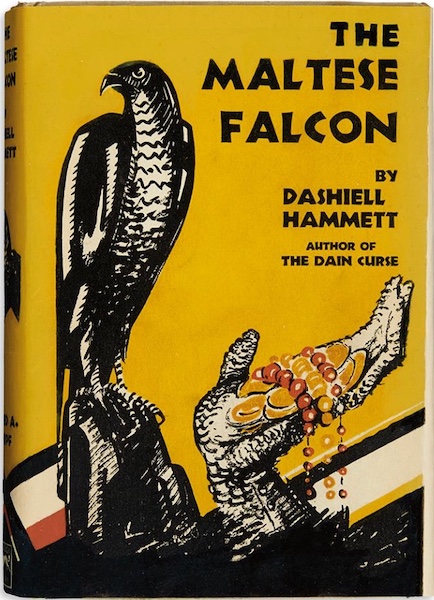
For nearly two hundred years, the private detective has been a literary archetype of manliness.
Edgar Allen Poe invented the literary detective with his character Auguste Dupin. Sherlock Holmes is perhaps the most famous of literary sleuths. (You can find the 10 best Holmesian stories here). These detectives, and other private investigators of the 19th and early 20th centuries, showcased keen observation and sharp analytical deduction. You rarely saw them get into physical altercations. They were heroes because they were brilliant.
But in the 1930s and through the 1950s, a new type of private eye started popping up in American literature. These detectives were smart, but they were also physically and emotionally tough. If they needed to, they’d resort to violence. They also did their best to develop a kind of mental armor to protect themselves from the sleaze they encountered because of their work. This resulted in their having a cynical and detached view of life.
These detectives had to become “hardboiled.”
Dashiell Hammett is credited with creating the hardboiled detective with the character of Sam Spade. Raymond Chandler added his spin to the archetype by introducing the world to Philip Marlowe.
What all hardboiled detectives have in common is that they’re outsiders. They work to solve crimes, but do it because they’re hired to perform a job. They’re not officers of the law, though criminals often see them that way. They’re mercenaries. Renegades. Liminal characters stuck between two worlds. Consequently, the hardboiled detective often doesn’t have a given code of ethics to follow. He has to develop his own and fight like hell to stick to it.
For the last couple years, I’ve been reading and enjoying numerous works from the hardboiled detective genre. While these books are known as pulp fiction, and they are indeed engaging, non-overly-high-brow reads, there are also deeper existential currents going on under the hood. So you can read them as gritty page-turners, and also as musings on how to make your way in a chaotic, crooked world.
Below I share five of my favorites; if you’re looking to dive into the genre, they’re all can’t-go-wrong starting places.
The Difference Between Hardboiled and Noir
Genres are funny things. They can cause a lot of debate among fans. The world of detective novels isn’t immune from that dynamic.
Hardboiled and noir are often used interchangeably to describe the same type of book. While hardboiled and noir novels do share similar characteristics (an unflinching look at violence against a backdrop of human depravity), many aficionados make a distinction between the two. The best description of that distinction that I’ve encountered comes from noir author Megan Abbott:
“The common argument is that hardboiled novels are an extension of the Wild West and pioneer narratives of the 19th century. The wilderness becomes the city, and the hero is usually a somewhat fallen character, a detective or a cop. At the end, everything is a mess, people have died, but the hero has done the right thing or close to it, and order has, to a certain extent, been restored. . . .
Noir is different. In noir, everyone is fallen, and right and wrong are not clearly defined and maybe not even attainable.”
I’ve read my fair share of noir novels, and I’ll do a post highlighting my favorites within that genre in the future. For this article, I’ll just be focusing on hardboiled detective novels.
The Maltese Falcon by Dashiell Hammett

Dashiell Hammett created the pattern for the hardboiled detective with Sam Spade. Underneath Spade’s hardened and cynical facade lies a profound idealism — a commitment to live by his own code of ethics.
The Maltese Falcon begins with Spade’s long-time partner getting killed and the police fingering Spade as the primary suspect. Spade has to juggle proving his innocence while trying to hunt down a valuable statue of a
No comments:
Post a Comment